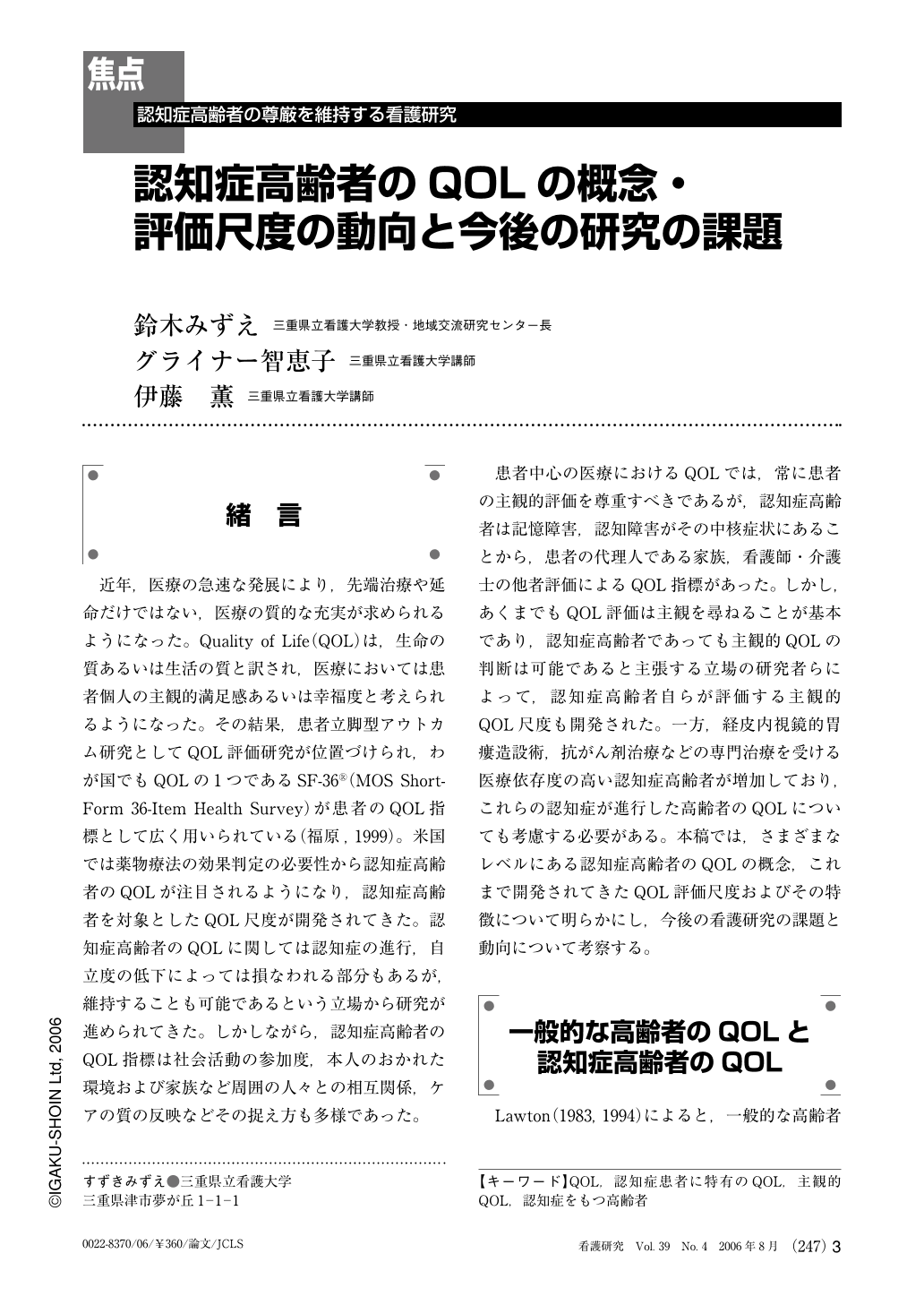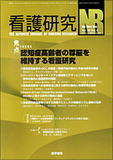Japanese
English
- 有料閲覧
- Abstract 文献概要
- 1ページ目 Look Inside
- 参考文献 Reference
- サイト内被引用 Cited by
緒 言
近年,医療の急速な発展により,先端治療や延命だけではない,医療の質的な充実が求められるようになった。Quality of Life(QOL)は,生命の質あるいは生活の質と訳され,医療においては患者個人の主観的満足感あるいは幸福度と考えられるようになった。その結果,患者立脚型アウトカム研究としてQOL評価研究が位置づけられ,わが国でもQOLの1つであるSF-36®(MOS Short-Form 36-Item Health Survey)が患者のQOL指標として広く用いられている(福原,1999)。米国では薬物療法の効果判定の必要性から認知症高齢者のQOLが注目されるようになり,認知症高齢者を対象としたQOL尺度が開発されてきた。認知症高齢者のQOLに関しては認知症の進行,自立度の低下によっては損なわれる部分もあるが,維持することも可能であるという立場から研究が進められてきた。しかしながら,認知症高齢者のQOL指標は社会活動の参加度,本人のおかれた環境および家族など周囲の人々との相互関係,ケアの質の反映などその捉え方も多様であった。
患者中心の医療におけるQOLでは,常に患者の主観的評価を尊重すべきであるが,認知症高齢者は記憶障害,認知障害がその中核症状にあることから,患者の代理人である家族,看護師・介護士の他者評価によるQOL指標があった。しかし,あくまでもQOL評価は主観を尋ねることが基本であり,認知症高齢者であっても主観的QOLの判断は可能であると主張する立場の研究者らによって,認知症高齢者自らが評価する主観的QOL尺度も開発された。一方,経皮内視鏡的胃瘻造設術,抗がん剤治療などの専門治療を受ける医療依存度の高い認知症高齢者が増加しており,これらの認知症が進行した高齢者のQOLについても考慮する必要がある。本稿では,さまざまなレベルにある認知症高齢者のQOLの概念,これまで開発されてきたQOL評価尺度およびその特徴について明らかにし,今後の看護研究の課題と動向について考察する。
Within clinical medicine, the concept of Quality of Life (QOL) is valued as the quality index of an individual patient_s subjective satisfaction. However, conventional QOL measurements which were evaluated by proxy of patients with dementia were main QOL standard index in Japan. The purpose of this study was to describe commonly utilized QOL measurements and features, and specifically, of the QOL concept as applied to elderly persons with dementia, and, finally, to consider future trends in QOL research. The present paper discusses Lawton_s four factors, which together constitute the QOL concept: perceived quality of life, behavioral competence, objective environment and psychological well-being. The QOL concept as applied to advanced dementia incorporates three additional factors: medical issues, meaningful activity and psychotic symptoms. The differences and similarities between both these QOL concepts, as well as other QOL measures, are discussed in this study. Because most objective and subjective QOL concepts were developed in Europe and the United States, it is necessary to develop subjective QOL concepts and QOL measurements based on Japanese cultural norms for elderly Japanese patients with dementia.

Copyright © 2006, Igaku-Shoin Ltd. All rights reserved.


